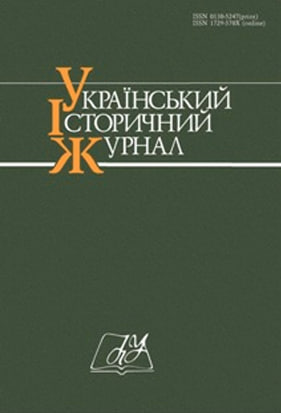Historical Memory and Historical Policy as Elements of Confrontation in Relations Between Poland and Russia (1991–2020)
DOI:
https://doi.org/10.15407/uhj2022.06.004Keywords:
Poland, Russia, Polish-Russian relations, historical memory, historical policy, humanitarian expansionAbstract
The purpose of this study is to analyze the influence of historical memory and historical policy on the formation of bilateral relations between Poland and Russia in 1991–2020.
The research methodology is based on the principles of historicism and objectivity, which provide complex and unbiased approach to processes, events, and facts covered in this article. The following methods have also been applied: historiographical analysis, chronological, comparative-historical analysis, and synthesis.
Scientific novelty. The study covers and analyzes the insufficiently-researched matter of the role of historical memory and historical policy in the relations of Poland and Russia in Ukrainian historiography, outlining the correlation between the intensification of historical discourse in the sphere of politics and the emergence of misunderstanding and confrontation in bilateral relations, as well as the influence of both internal and foreign political factors on the process and forms of historical reconciliation of both states. Defining the key aspects of memory politics and the historical policy of Russia provides the opportunity to assess the goals and objectives of Russia’s aggressive humanitarian expansionism towards neighboring states, including Ukraine.
Conclusions. There have been numerous tragic pages throughout the history of Polish and Russian relations, especially regarding the events of the 20th century, echoes of which remain in historical memory and public consciousness to this day. The Polish leadership’s attempt to build Polish-Russian relations after the fall of the communist system involving historical reconciliation impeded the bilateral dialogue as historical policies of both states regarding the same events have been diametrically opposed. Though Warsaw has been successful in obtaining certain concession from the Russian leadership regarding overcoming the difficult legacy of historical past, they failed to achieve real mutual understanding in the historical plane. This was a consequence of Russian interpretation of historical events, gradually transforming into an instrument of execution of aggressive foreign policy.


